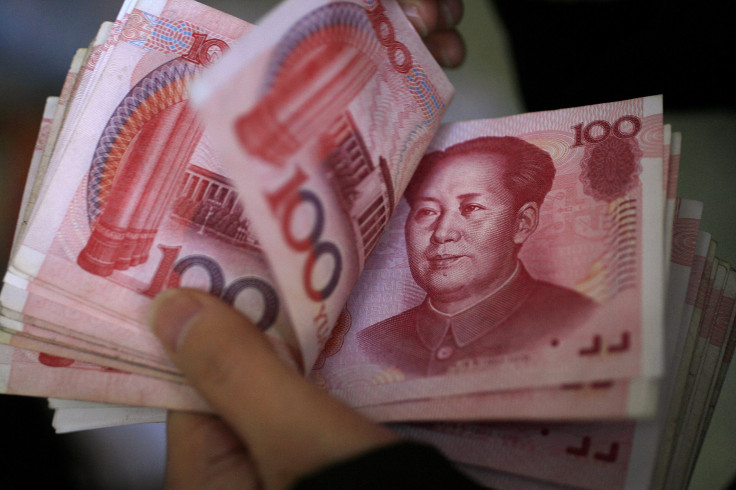Global Market Shock: How China’s Currency Woes Are Hammering Investors Around The World

The new year hasn’t been kind to the world's markets. Stock indexes around the globe continued tanking and commodities prices extended losses Thursday, largely in response to volatility stemming from China. And with North Korea’s claim to have exploded a hydrogen bomb Wednesday, markets are on the brink.
Here's why China is troubling investors around the world.
1. What’s behind Thursday’s market mayhem?
When public markets opened for trading in Shanghai Thursday, investors rushed in droves to sell their shares. In the first half-hour of trading, the Shanghai Composite index of stocks was down 7 percent, triggering the Chinese government’s newly implemented “circuit breakers,” which halted trading for the day. It was the second time the breaker was tripped this week.
The return of Chinese market turbulence, which roiled international markets over the summer, has cast a global pall. “Short-term, it’s going to cause chaos,” said Tom Elliott, international investment strategist for London’s deVere Group.
Though few international investors directly own Chinese stocks, the markets provide an economic barometer for China, the world’s second-largest economy and driver of international demand. And with China’s economy stuffed with staggering levels of private debt, some fear Shanghai’s markets could turn into an economic bombshell.
2. What does the yuan have to do with it?
Preceding the mainland China sell-off was a decision by the nation’s central bankers to allow the yuan, China’s official currency, to fall in value against global currencies. The yuan trades within a 2 percent up-or-down band that the People’s Bank of China sets on a daily basis.
For months markets have priced the yuan below its inflated official price, and on Thursday the government allowed the trading band to drop 0.5 percent, the largest fall since a surprise currency shift five months before.
The recent move, which puts upward pressure on the dollar and the euro, confirmed investors’ concerns that the Chinese economy remains in a downward spiral. “It’s been taken as a signal that the Chinese economy is a lot weaker than previously expected,” Elliott said.
Investors suspect Beijing is using the currency move in part to shore up its economic situation. Although the effective devaluation brings the currency more in line with market pressures, it could also serve to aid Chinese exports and provide a shot in the arm to China’s economy. That boost, of course, would come at the expense of American manufacturers, which have seen export demand slide in the face of a stronger dollar.
3. Is it the broader Chinese economy, or just the markets?
The Chinese economic slowdown is not new. Beijing’s official economic growth data — which investors have found reasons to doubt — have shown gross domestic product gains slowing from double digits in 2010 to roughly 7 percent in 2014. Recent data continue that trend, with China’s manufacturing output falling well below analysts’ expectations in December.
For investors, then, the story in recent days isn’t a new one. But corrections in the Chinese stock markets stoke fears that the deceleration of China's economy could turn into a hard brake.
After China’s great property boom petered out, Beijing ushered retail investors into equities through lax borrowing rules. The subsequent bull market created trillions of dollars in new wealth and enriched a generation of investors.
But with Beijing removing some of its supports for the market — Goldman Sachs has estimated that the Chinese government spent $236 billion propping up falling markets in mid-2015 — ordinary Chinese investors may be in for a rude awakening when the massive market gains reverse. “If you tell them that’s just the market, they will say, ‘Well, we thought it was just a government-sponsored savings scheme,’ ” Elliott said.
If the government lets debt-laden companies and households suffer, Elliott added, China’s economic decline could become a free fall. And there’s some indication that Beijing is moving to a more hands-off approach. After markets closed Thursday, officials suspended the short-lived circuit breaker policy, concluding that it only made this week’s sell-offs worse.
4. Where is China’s economy headed?
China has been in the midst of a much-heralded shift from a manufacturing economy to one grounded in services. But after years of being the world’s factory, China faces stiff challenges in accomplishing that feat, as evidenced by recurring international market jitters.
It’s unclear just how successful the Communist Party has been in effecting the change. China’s manufacturing sector continued a 10-month contraction in December, while the gauge for services posted its second-worst reading in a decade.
Most analysts don’t see the pain letting up anytime soon. Bank of America sees the Shanghai Composite falling nearly 30 percent in 2016. Goldman Sachs sees China’s economy growing at least a half-point slower than Beijing has projected in coming years.
“We’re in for quite a long period of much lower growth from China and constant fears that China is heading for a hard landing,” Elliott said. “Those themes are going to persist for a couple of years to come.”
© Copyright IBTimes 2024. All rights reserved.












